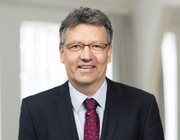Compared with the situation in other countries, however, the impact on Germany and Europe is rather minor. This is because the crop failures of the first year of the war and the even more difficult situation in the coming summer are having a global impact. And by no means is every country prepared for this. Ukraine is one of the most important exporters of wheat, sun oil and soybeans. Lebanon and Tunisia in particular will suffer from crop failures, and the limited exports by cargo ships across the Black Sea can hardly ease the situation. This is shown by our study on the global food crisis. Another study by the Bertelsmann Stiftung shows where the agricultural sector in Tunisia in particular is lacking and where the European Union could provide support.
But the foundation has not only dealt with the situation in Ukraine through studies and events. As a member of Alliance4Ukraine, it also provides concrete help. The program includes financial support for refugees. It helps organize shelter and takes care of job placement and medical care. So far, the alliance has provided 1.5 million euros in support, while another one million euros is available in the fund.
In the Bertelsmann Stiftung podcast, Ulrich Kober, migration expert at the Bertelsmann Stiftung, and Chris Melzer, spokesman for the UN refugee agency UNHCR, addressed the refugee situation. The municipal experts are in regular contact with refugees and host communities in the Ukraine Online Exchange. Here you can find important tips and experience reports. On Youtube, we have collected the online exchange in a playlist. Claudia Walther explains in an interview what has been achieved so far.
Older articles on the situation in Ukraine, the Orthodox Church and the refugee situation can be found here.











